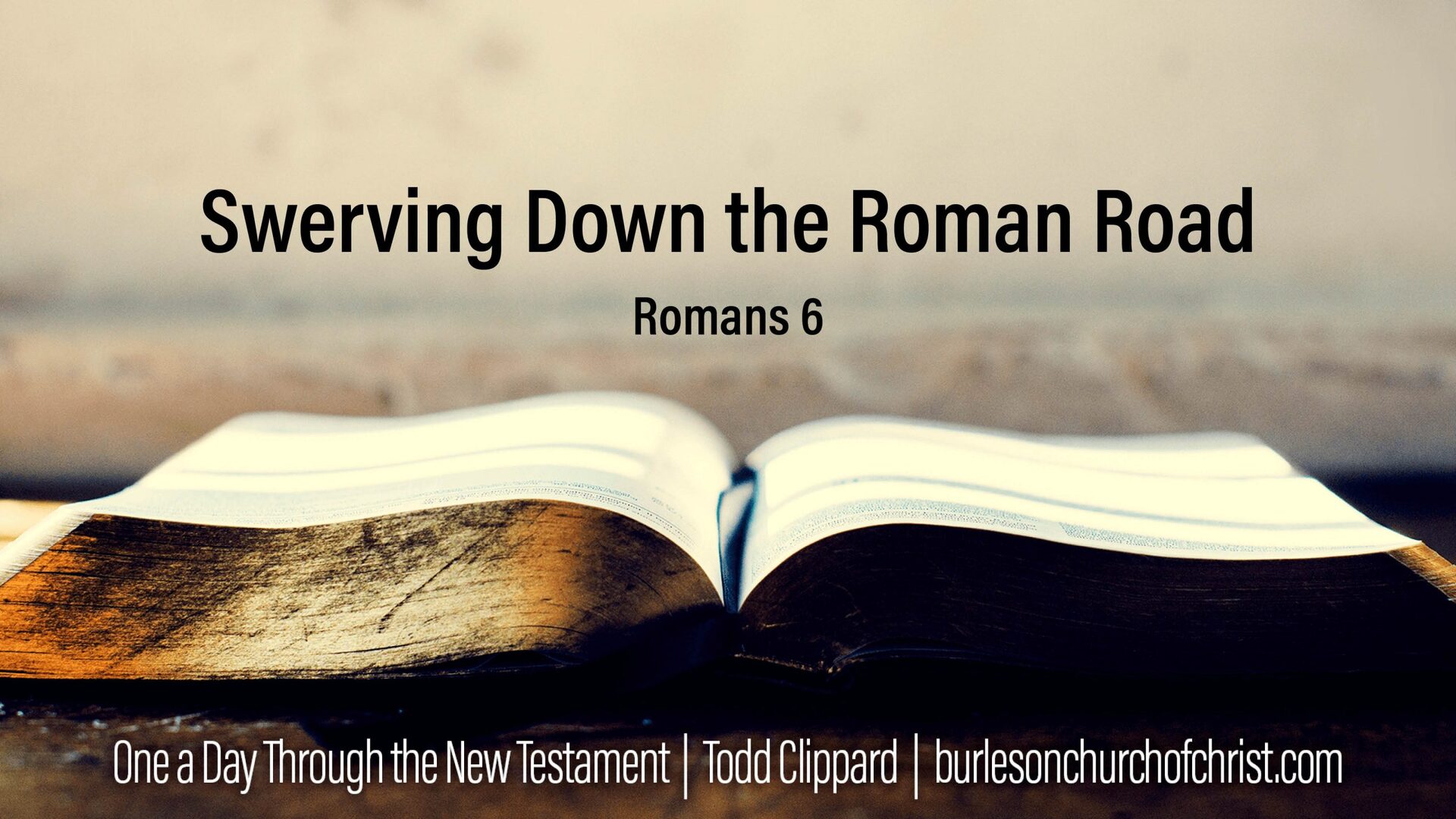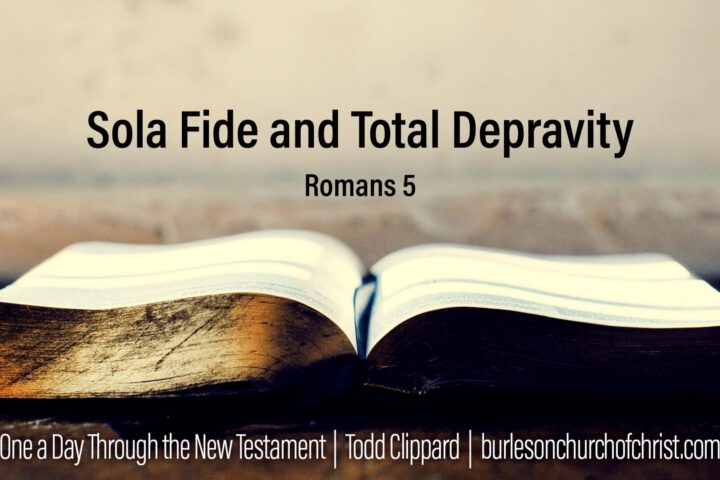One a Day Through the New Testament (Page 10)
Romans 7: Ditch that Dead Husband
In extolling the superiority and exclusivity of the gospel of Christ, Paul compared the Law of Moses to a dead husband. While a woman may have once been married to her husband, when he is dead that bond is severed so that she may marry another without being an adulteress. In like fashion, Paul continued, the Law of Moses was to the Jews as a dead husband. Being freed from that law, they were free to be married to another,…
Romans 6: Swerving Down the Roman Road
“When a man drives down a road full of potholes in the dark and never hits a single one, you know that he knows where the holes are.” So said Alan Highers at the Freed-Hardeman Lectures a number of years ago, speaking about baptism in John 3 and how deftly denominational teachers managed to avoid it. In like fashion, no one who promotes the teaching known as “the Roman Road to Salvation” manages to travel through chapter 6. They can…
Romans 5: Sola Fide and Total Depravity
In the margin of his Bible next to Romans 1:17, Martin Luther drew a line from the phrase “the just shall live by faith” and wrote the word “sola,” a Latin word meaning one, only, or alone. It was his conclusion that man was saved by faith alone without any response to God on man’s part. In his own translation of Romans, Luther added the word “alone” to the text, (though it is nowhere to be found), making the text…
Romans 4: Abraham believed God
Abraham is known as “the Father of Faith.” His fidelity to God is legendary among Bible believers. Today’s text contains a statement that is often misused concerning Abraham and his righteousness before God, specifically verse 3, “For what does the Scripture say? ‘Abraham believed God, and it was accounted to him for righteousness.” To many, this is the “sugar stick” verse to teach salvation by faith only without any response of obedience by man. However, to use this verse in…
Romans 3: In case I missed anyone
Romans 1 was a blanket indictment of the sins of the Gentiles provoked and unrestrained by their reprobate minds (vv 18-32). Romans 2 showed the Jews’ manifold moral failures and hypocrisy “hidden” under the cloak of the Law. Anticipating an objection from the Jews regarding Paul’s perceived disrespect for the Law, the apostle reassures them of their place in God’s plan, for unto them was committed the oracles of God (vv 1-2). But from there Paul goes on to note…
Romans 2: You who teach another
Romans 1:18-32 is a summary judgment against the Gentiles. In legal terms, a summary judgment may be issued when it is obvious there is no need to go to trial. Either the evidence is totally lacking and the case without merit, or the evidence proves a case on its face. In Romans 1, the unrighteousness and vile conduct of the Gentiles was evident to all so as not to warrant a defense. In Romans 2, Paul turns his attention to…
Romans 1: Reading Romans Rightly
As we enter a reading of Romans, I am first reminded of the propensity of many to read this epistle as if it is the centerpiece of all biblical literature. This is a serious error. There is nothing more to Romans than any other inspired literature. Also, many read and “interpret” Romans as if Jesus never said or taught anything. Much of what is written of Romans in common theology contradicts many of the clear teachings of Jesus. While some…
Acts 28: Taking Up Snakes
After the escape from the sea and being marooned on the island of Malta, Paul had gathered some sticks for the fire built to protect survivors from the wet and cold. As he laid the bundle on the fire, a viper emerged and fastened on his hand. When the natives of Malta saw this, they thought he must surely be a robber, and that, though he escaped from the sea, fate would not allow him to live. Shaking off the…
Acts 27: I believe God
Paul’s journey to Rome was beset with many difficulties, including a storm at sea that eventually led to the loss of the ship and all its contents. Early on, Paul had intreated Julius, (the centurion charged with delivering him to Rome), not to continue once they had reached Fair Havens in Cyprus. However, Julius was persuaded by the helmsman and ship owner to try and find a more suitable place to spend the winter. It was logical for Julius to…
Acts 26: “I thought” and “Almost”
From today’s text we take up thoughts from two recent readings: “I thought” from Acts 23 and “Almost” from Acts 24. In Acts 26:9 we find Paul reflecting on his time as a persecutor of the Lord and His church, saying to King Agrippa, “Indeed, I myself thought I must do many things contrary to the name of Jesus of Nazareth.” When we have preconceived ideas of how things should be, we can allow our own thinking to direct us…









